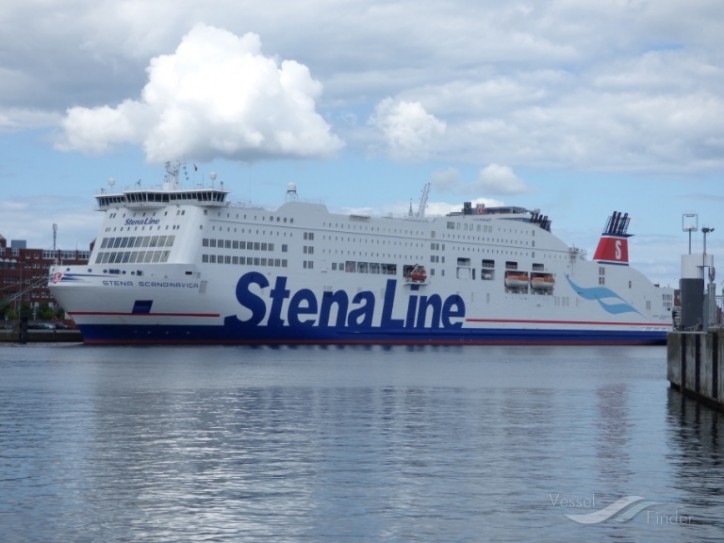As a central part of Stena Line’s efforts to reduce fuel consumption and minimise environmental impact, the company is now running a pilot study where artificial intelligence technology is implemented on board vessels.

In close collaboration with the technology company Hitachi, an AI-model is being developed that will help predict the most fuel-efficient way to operate a certain vessel on a specific route. The model will be a support for the captain and officers on board, and if successful it will make an important contribution to Stena Line’s sustainability target to reduce fuel consumption by 2.5 % annually.
“The model simulates many different scenarios before suggesting the most optimal route and performance setup. With the help of AI we are able to consider a number of variables, such as currents, weather conditions, shallow water and speed through water, in various combinations which would be impossible to do manually”, says Lars Carlsson, Head of AI at Stena Line.
The model is still under development and it would not be possible to take it further without a committed captain and crew. That is why the first pilot study is taking place on Stena Scandinavica (see more about the vessel at CruiseMapper), under the supervision of Senior Master Jan Sjöström who has been working with fuel optimisation at Stena Line for the last 40 years.
“Since we are helping the AI to evolve, we might be assisting the AI more than we are at the moment, but it is a very exciting and rewarding process. We’ve been making adjustments to the model after each trip for about four weeks and it is amazing to see how quickly it is learning”, says Jan Sjöström, Senior Master at Stena Scandinavica.
The goal is to create a model that is so precise that it would be the ultimate decision support system for the captain when planning each trip. For example, if AI could assist with accurate predictions of currents, which is one of the most complicated variables today, it would help even the most experienced captain or officer.
Moving forward, the model will also help sharing competence and knowledge to the next generation of captains and officers.
“Planning a trip and handling a vessel in a safe and, at the same time, fuel efficient way is craftsmanship. Practice makes perfect, but when assisted by AI a new captain or officer could learn how to fuel optimise quicker. In return, this contributes to a more sustainable journey”, says Jan Sjöström.
Stena Line has an overall goal that the whole company should be assisted by AI in 2021 and the pilot study on Stena Scandinavica, on the Gothenburg – Kiel route, is the first of several studies regarding AI-assisted ferry trips within the fleet this year. At the end of the year there will be an evaluation of the project, before deciding how to continue with AI-assistance on the company’s 38 ships.
“We are proud to be working with Stena Line to develop and implement AI technology that will deliver benefits to both the company and the environment. By taking a co-creation approach, working together to combine industry expertise with data and AI, Hitachi and Stena Line have been able to show how digitisation can optimise existing physical assets to create a better outcome”, says Ram Ramachander, Chief Digital Officer at Hitachi Europe Ltd.
Stena Line is already being assisted by AI within several areas such as administration, finance, customer experience and customer care.
Source: Stena Line